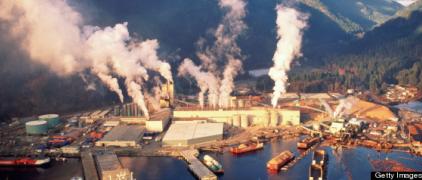
One of the primary outcomes of the MC3 project is knowledge mobilization to expedite the spread of climate innovations more rapidly in communities throughout BC. A recent development occurring in the nearby states of Washington and Oregon shows that the spread of innovations is actually occurring on a larger scale. Earlier this year, former BC environment minister, Terry Lake, met with politicians, academics and business leaders in the state of Oregon to share BC’s experience with its carbon tax. This visit was conducted in anticipation of moves Oregon and Washington are making toward implementing a similar carbon-pricing system.
The BC carbon tax is revenue neutral, and operates by taxing fossil fuels and returning this revenue to taxpayers and businesses in the form of tax reductions. When first devised, the concept of a revenue neutral carbon tax was a subject of controversy and debate in BC, and many argued that it would be harmful to BC residents, businesses and the provincial economy. However, since its implementation, the province’s growth has kept pace with the rest of Canada while simultaneously reducing its fuel consumption by 17.4%1. In addition, while designed to be revenue neutral, the carbon tax has actually led to a $500 million net return to BC taxpayers2. The success of this innovative financial instrument has not gone unnoticed, as now BC’s American neighbours of Washington and Oregon are in the stages of developing and implementing similar climate action strategies.
1Sustainable Prosperity. (2013). BC’s carbon tax shift after five years. Retrieved from http://www.sustainableprosperity.ca/dl1026&display
2Ministry of Finance. (n.d.) Myths and facts about the carbon tax. Retrieved from http://www.fin.gov.bc.ca/tbs/tp/climate/A6.htm
*Picture credit: Getty Images, http://www.huffingtonpost.ca/2013/10/28/carbon-tax-bc-washington-oregon…